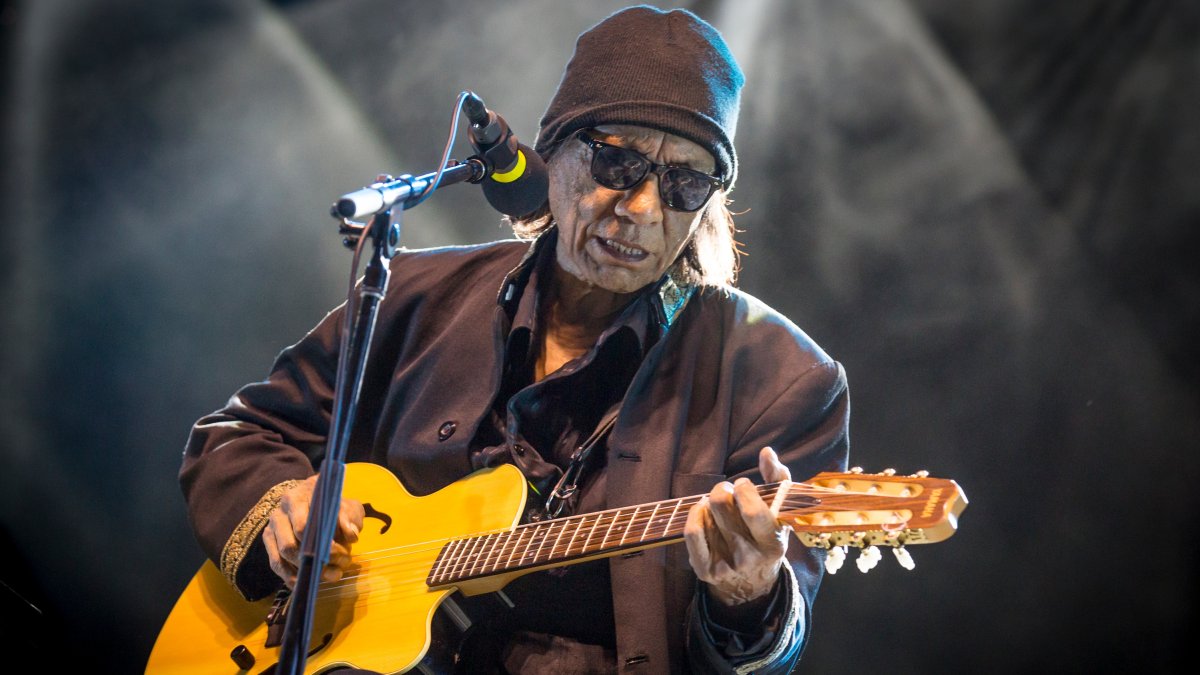Singer and songwriter Sixto Rodriguez, who grew to become the subject matter of the Oscar-winning documentary “Searching for Sugarman,” has died. He was 81.
Rodriguez’ demise Tuesday in Detroit was declared on the Sugarman.org internet site and confirmed Wednesday by his granddaughter, Amanda Kennedy.
He died following a limited ailment, according to his spouse, Konny Rodriguez, 72.
A 2013 Involved Push story referred to Rodriguez as “the best protest singer and songwriter that most individuals in no way listened to of.”
His albums flopped in the United States in the 1970s, but — mysterious to him — he later grew to become a star in South Africa in which his tracks protesting the Vietnam War, racial inequality, abuse of gals and social mores encouraged white liberals horrified by the country’s brutal racial segregation procedure of apartheid.
Swedish filmmaker Malik Bendjelloul’s documentary “Hunting for Sugar Man” introduced Rodriguez to a significantly much larger viewers. The film tells of two South Africans’ mission to seek out out the fate of their musical hero. It won the Academy Award for greatest documentary in 2013.
Rodriguez was “more well known than Elvis” in South Africa, Stephen “Sugar” Segerman said in 2013. The Cape City file retail store owner’s nickname arrives from the Rodriguez song “Sugarman.”
As his reputation in South Africa grew, Rodriguez lived in Detroit. But his supporters in South Africa believed he also was well known in the United States. They heard stories that the musician had died drastically: He’d shot himself in the head onstage in Moscow He’d set himself aflame and burned to death before an audience someplace else He’d died of a drug overdose, was in a mental institution, was incarcerated for murdering his girlfriend.
In 1996, Segerman and journalist Carl Bartholomew-Strydom established out to master the real truth. Their attempts led them to Detroit, the place they discovered Rodriguez functioning on building web sites.
“It’s rock-and-roll history now. Who would-a imagined?” Rodriguez explained to The Linked Press a ten years back.
Rodriguez mentioned he just “went back to work” soon after his audio vocation fizzled, boosting a relatives that features a few daughters and launching many unsuccessful campaigns for community business office. He manufactured a residing via guide labor in Detroit.
However, he by no means stopped actively playing his music.
“I felt I was completely ready for the planet, but the world was not completely ready for me,” Rodriguez mentioned. “I feel we all have a mission — we have obligations. These turns on the journey, various twists — everyday living is not linear.”
Konny Rodriguez explained the pair met in 1972 though the two were being learners at Wayne Condition College in Detroit and married in the early 1980s. Whilst even now married at the time of his demise, the few experienced been divided for a selection of several years, she mentioned Wednesday even though shuffling as a result of some of Sixto Rodriguez’s memorabilia.
“He liked college. He was born to be taught, to teach himself,” Konny Rodriguez reported. “The music was more to provide folks alongside one another. He would perform anywhere, whenever. That is wherever I noticed him. He was strolling down Cass Avenue with a guitar and a black bag. He was a definitely eccentric dude.”
The two albums she explained he recorded n 1969 and 1971 “didn’t do properly.”
“I’m confident that was nevertheless in his head,” Konny Rodriguez extra. “Then in 1979, I picked up the cellphone and it was a man with an Australian accent who mentioned ‘he ought to appear to Australia mainly because he’s really popular in this article.’”
She said they toured Australia in 1979 and 1981 and later on acquired about the effect of his audio in South Africa.
“Apartheid was heading on,” she mentioned. “Frank Sinatra had a complete-website page advert, ‘Do not go to South Africa.’ We did not.”
Following the conclusion of apartheid, Sixto Rodriguez did vacation to South Africa and carry out in entrance of his lovers there, she said.
“He did so well in South Africa. It was insane,” Konny Rodriguez claimed.
Sixto Rodriguez later pursued royalties he did not get from his songs currently being made use of and performed in South Africa.
Some of Rodriguez music have been banned by the apartheid routine and a lot of bootlegged copies ended up created on tapes and later on CDs.



